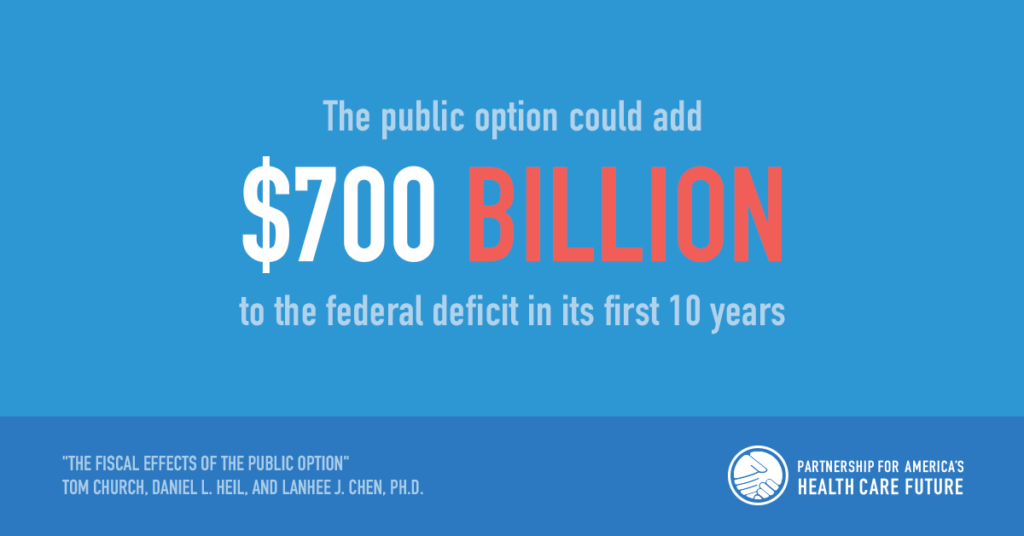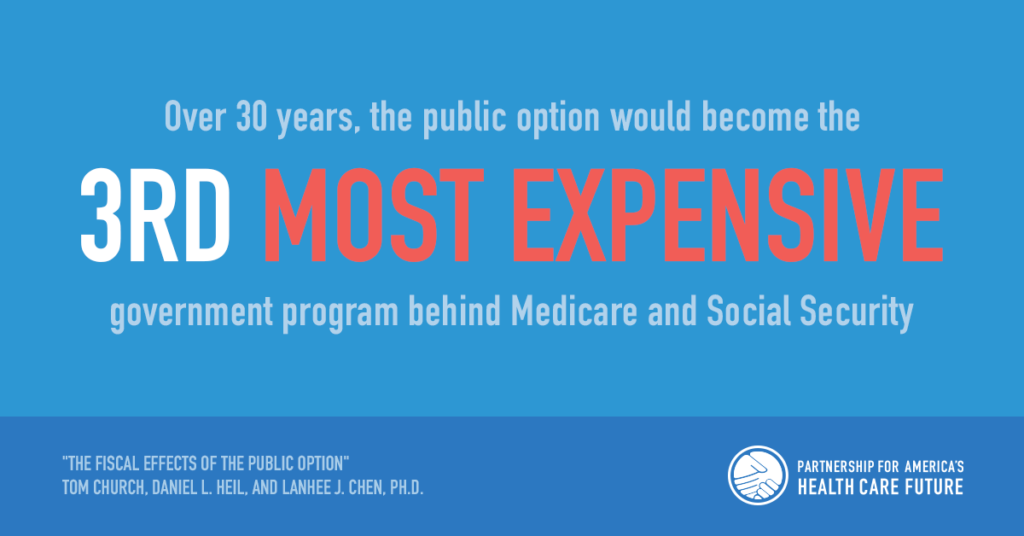STUDY: The Fiscal Impacts of the Public Option
A new study released by Tom Church, Daniel L. Heil, and Lanhee J. Chen, Ph.D., with support from the Partnership for America’s Health Care Future, reveals the public option “could require tax increases on most Americans, including middle-income families” and could “add over $700 billion to the 10-year federal deficit, with dramatically larger losses in subsequent years.”
The study, “The Fiscal Effects of the Public Option,” finds the potential increase in the federal deficit under the public option could ultimately force politicians to raise taxes on hardworking families.
The Facts:


According to the study, “Supporters of a federal public option contend that a government-run health plan will reduce federal deficits, [but] [i]f Congress follows its past behavior, a public option could add over $700 billion to the 10-year federal deficit, with dramatically larger losses in subsequent years. Furthermore, to avoid large increases in deficits, a politically realistic public option could require tax increases on most Americans, including middle-income families.”
Though the public option is billed by many politicians as a “moderate” alternative to Medicare for All, it could hurt access to quality care for millions of Americans and could require tax increases on American families. In fact, the study finds the public option could lead to a new 4.8 percent payroll tax on hardworking families over 30 years — far higher than the combined Medicare payroll tax Americans pay today.
According to study author Lanhee Chen: “To pay for a politically realistic public option, policymakers could impose a new 4.8 percent payroll tax, which would eventually cost the average American worker about $2,300 per year in higher taxes, based on our calculations and data from the U.S. Department of Labor’s Bureau of Labor Statistics.” (“The Fiscal Effects Of The Public Option,” Tom Church, Daniel L. Heil & Lanhee J. Chen, Ph.D., 1/24/20; “Usual Weekly Earnings Of Wage And Salary Workers,” Bureau Of Labor Statistics, U.S. Department Of Labor, Accessed 2/3/20)
The Truth:
Any new government-controlled health insurance system would result in the same harmful consequences for American patients. Supporters of the public option contend it could reduce the deficit by reimbursing doctors and hospitals at Medicare rates and requiring premiums to cover costs.
However, recent history on Capitol Hill and in the states shows that putting politicians in charge of a new government-controlled health insurance system could lead to higher costs and tax increases for hardworking families when programs can’t keep these promises.
Instead of a new government-controlled health insurance system we can’t afford, let’s work together to lower costs for every American by increasing competition in the free market and giving everyone greater choice and control over their coverage and care.